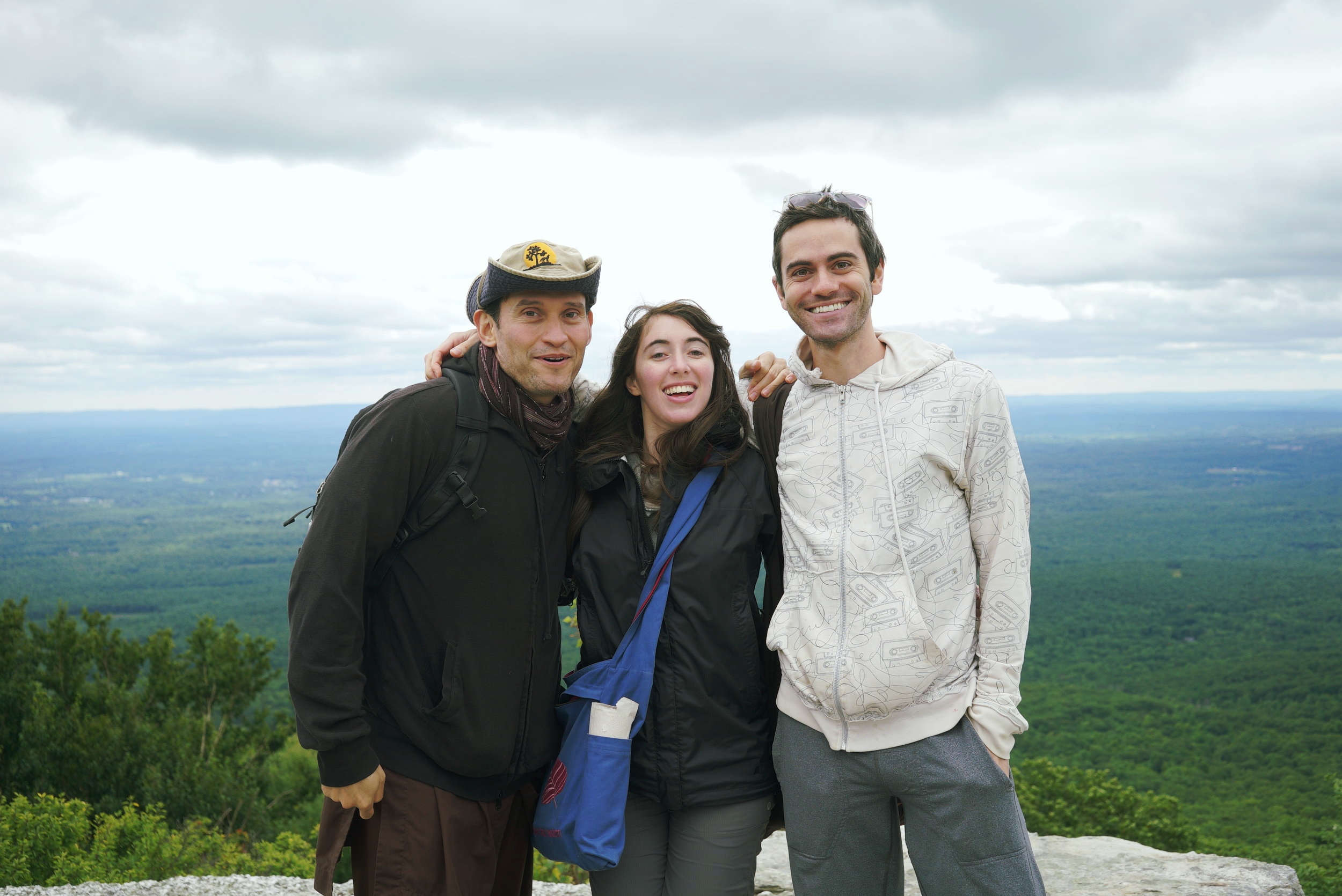How I wound up studying mindfulness in the faculty of medicine
A little bit about me and what I am currently up to...
My background in fine arts and environmental studies might make you wonder how I found myself doing a PhD in the Faculty of Medicine at the Institute of Medical Science (IMS). The short answer is, I love learning and found that, currently, pursuing the topic of mindfulness in academia often means finding a place to fit it in, as not many "Faculty’s of Mindfulness" exist... yet.
Because of this, I have had to skillfully traverse academia and find myself with a fairly unique set of degrees. For reference, my current degrees are:
1) Bachelor of Fine Arts, Film Production, York University (completed, 2009)
2) Masters Environmental Studies, Integrating Mindfulness into Education, York University (completed, 2014)
3) Doctor of Philosophy, Institute of Medical Science, University of Toronto (started 2016)
I am currently enrolled full-time as a PhD student at the Institute of Medical Science (IMS) in the Faculty of Medicine at the University of Toronto. On orientation day, one of the faculty members addressed the incoming Masters and PhD students saying "shout if you are studying stem-cells or if you are studying synthetic blood!" The category of "mindfulness" was not mentioned.
“...pursuing the topic of mindfulness in academia often means finding a place to fit it in, as not many “Faculty’s of Mindfulness” exist... yet.”
For my Masters degree, which focused on integrating mindfulness into education, I studied in the Faculty of Environmental Studies at York University - a program that is founded in a multi-disciplinary theoretical framework. They were wonderfully supportive. I pitched them the idea that classrooms represent an important environment worth studying and that mindfulness could be viewed as a method for creating sustainable healthy learning environments.
After completing my Masters degree, I had not necessarily planned to pursue a PhD. However, in the winter of 2016, I found myself having tea with a mentor, Michele Chaban (a wonderful human and founder of the Applied Mindfulness and Meditation Certificate program at the University of Toronto).
We were sitting in her living room enjoying an afternoon tea and discussing life. I was sharing how much I enjoy teaching and learning, when she said to me, "Elli, you should really consider getting a PhD." She then told me about the Institute of Medical Science, a research-based program that she said "will make you the best researcher you can be."
The early application due date was just two weeks away, so I figured why not apply and see what happened? One benefit about having a long-term mindfulness practice, along with a strong and supportive community of family and friends, is that you feel safe to take risks. The resiliency you build up from your mindfulness practice guarantees a softer landing if you fall/fail—so why not just jump off the cliff?!
“The resiliency you build up from your mindfulness practice guarantees a softer landing if you fall/fail—so why not just jump off the cliff?!”
Fast-Forward:
I applied. Got an interview. Was accepted. And now I find myself in a program that will push me to research at a level of rigour which I feel is exciting for both myself and the field of mindfulness.
I also see many correlations between the research I did exploring mindfulness in education and its potential applications in the field of healthcare. One of the main overlaps is the question around caring for the caregivers and how mindfulness can impact the individual mental health of the teacher or physician in a way that benefits the wider organization (student, patient, school, hospital, society).
I can’t know where all of this is going, but I’m excited by the potential, and, so far, enjoying each step along the way.
Suggested Practice: Intention Setting
Journaling can be a great way to clarify your intentions around a specific activity or experience.
I really enjoy free-writing as an approach to journaling. The basic idea of free writing is that you read a prompt question (see below!), set a timer, and then keep free-flow writing for the entire time – even if you don’t know what to write about. For example, you might start by writing “I don’t know what to write” and then as soon as you can, direct your writing towards the prompt question. But whatever you do, just keep writing. The other key component in a free writing exercise is to be aware that no one else will be reading or marking what you write, so you don’t have to worry about spelling, grammar or perfection.
Exercise
Materials: For this exercise, I’d suggest you set a five minute timer. Once you have the timer and your pen/paper ready read the framing and prompt below.
Framing: Bring to mind an activity or experience you would like to reflect on. This can be something broad, like your research or current work position, or something specific, like a workshop or class you are teaching, or a difficult conversation you are planning to have.
Prompt: For the next five minutes, write why you are pursuing this activity – what are the driving forces that have made this a part of your life?
Reflection: When you are done free-flow writing, take a moment to re-read what you have written. Is there anything there that surprises you? You might like to highlight or circle any words or phrases that stand out. Take a moment to reflect on any insights your free-flow writing has revealed to you.

